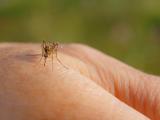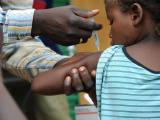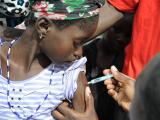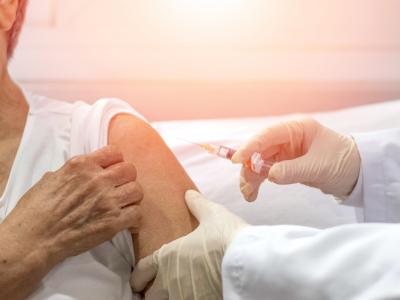Jul 16, 2004 (CIDRAP News) A government-sponsored trial of the safety and effectiveness of a drug to combat encephalitis in West Nile virus (WNV) patients is being expanded this summer, federal officials announced this week.
The National Institute of Allergy and Infectious Diseases (NIAID) said the drug contains WNV antibodies derived from blood donors in Israel, where the disease has circulated for decades. The drug, called Omr-IgG-am, is used in Israel to treat people with primary immune deficiencies, such as those associated with chronic lymphocytic leukemia, according to Walla Dempsey, PhD, NIAID program officer for the clinical trial.
The trial began at 36 sites in the United States and Canada last September and is expected to add about 24 more sites this summer, the NIAID said in a news release. The goal is to enroll up to 110 adults who have WNV-related encephalitis or are at risk for it, the agency said. Just seven patients have been enrolled in the trial so far, all of them last year, Dempsey told CIDRAP News.
Patients will receive Omr-IgG-am, made by the Israeli company Omrix, or one of two placebos. The goal of the trial is to assess the drug's safety and begin to assess its effectiveness against West Nile encephalitis, the NIAID said.
Dempsey said the drug has been used off-label to treat a few West Nile patients in Israel. "Those were anecdotal cases," she said. "Some people got better and some didn't. This is why we're doing the placebo-controlled trial."
No results on the effectiveness of the drug in the US patients are available yet, Dempsey said. "The safety monitoring committee has reviewed the safety reports and they're satisfied that there are no issues," she added.
With no specific treatment available for WNV, clinicians "have few options besides supportive care," NIAID Director Anthony S. Fauci, MD, noted in the release.
Dempsey said Omr-IgG-am is the only potential West Nile treatment the NIAID is currently testing in a clinical study. The agency has a WNV drug screening program that has tested more than 750 compounds, a few of which have shown promise in the laboratory, she added.
Two potential WNV vaccines are in the early stages of testing, Dempsey noted. One is being developed by Acambis and the other by the NIAID itself, she said.
In other developments, 30 new cases of WNV illness were reported to the Centers for Disease Control and Prevention (CDC) from Jul 7 through 13, bringing this year's total to 108, the CDC said yesterday. Sixty-one cases involved neurologic manifestations (encephalitis, meningitis, or myelitis). Cases have been reported in 10 states, with 47 in Arizona alone.
See also:
Jul 13 NIAID news release
http://www.niaid.nih.gov/news/newsreleases/2004/Pages/wnvivig.aspx
CDC's WNV report in Jul 16 Morbidity and Mortality Weekly Report
http://www.cdc.gov/mmwr/preview/mmwrhtml/mm5327a4.htm
















